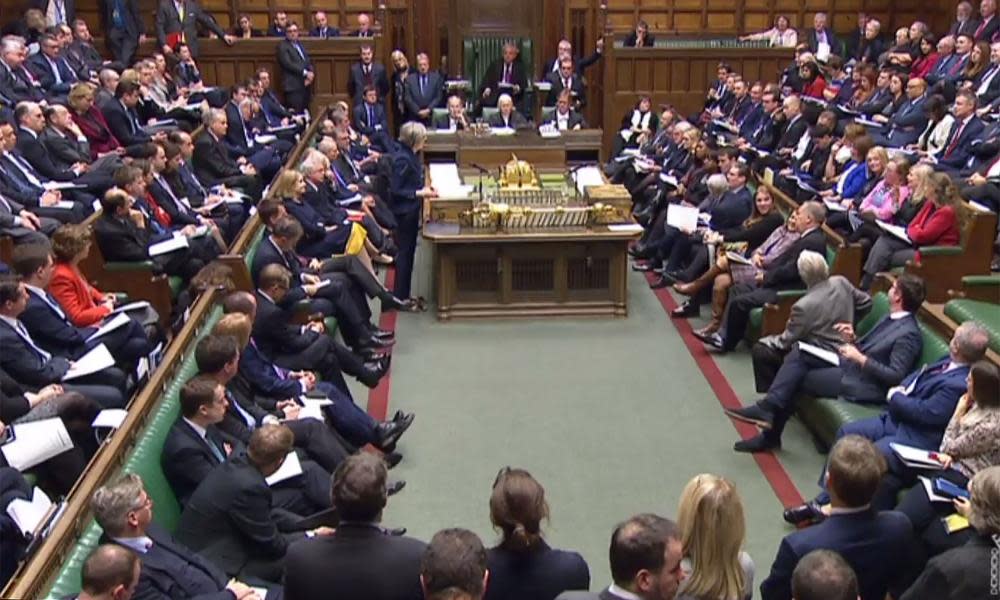The Guardian view on the Brexit vote: mutiny wanted | Editorial

MPs’ debates on the EU withdrawal bill have mainly been serious and often of high quality. Tuesday’s attempts to blunt the bill’s sweeping “Henry VIII” powers were a notable example. Yet so far the debates have made few substantive changes to the bill itself. On Wednesday that will have to change. MPs are scheduled to debate and vote on amendment 7 to clause 9 of the bill, moved by the Conservative MP Dominic Grieve. This would require any final UK-EU Brexit deal to be put to a meaningful parliamentary vote. It is the most consequential of all the amendments to the original bill and it is important that Mr Grieve’s amendment is carried. Another climax will come next week, when the government’s attempt to put the 2019 leave date into law will be challenged.
Most MPs wanted Britain to remain in the European Union. But the result of the referendum has made many cautious about insisting on parliament’s role in its aftermath. The general election, which might have provided clearer authority for parliament’s involvement, instead resulted in confusion. In the absence of a second referendum, parliament’s role is still as constitutionally supreme as ever. It is also politically necessary for parliament to hold ministers to account, and to ensure that the terms of any eventual Brexit are as much as possible in the national interest. The referendum said nothing about those terms. The government on its own cannot decide them – and has shown itself incompetent at trying to do so. The job of agreeing terms therefore belongs to parliament.
That issue has been a leitmotif of Brexit arguments. It was at the heart of Gina Miller’s landmark case on parliament’s role in article 50. It was deeply entwined in the call for the Brexit department to release assessments of the economic impact of leaving the EU – and was not negated by the admission that such assessments have not been made. Now it is again at the core of Mr Grieve’s case for parliament – not the government – to have the final say on any eventual Brexit terms. It is hard to think of a more vital role for the people’s representatives than to decide whether those terms are appropriate. Mr Grieve is right that the best way to have such a vote is in the form of a statute that minimises ministerial discretion.
The amendment is very simple. Clause 9 of the bill says ministers can implement the withdrawal agreement with the EU (if there is one) by issuing regulations. The amendment adds the words “subject to the prior enactment of a statute by parliament approving the final terms of withdrawal”. Constitutionally, this is impeccable. It reinforces the judgment of the supreme court in the Miller case that Brexit policy is not a prerogative power. Politically, it is firm and moderate. The amendment does not deny Brexit. It does, however, insist – against the pretence of the hard leavers – that Brexit cannot be a done deal when no deal has yet been done. If passed, the amendment will further tighten the already tight timetable pressure on the government, but this is squarely Theresa May’s fault for triggering article 50 before she knew what she was aiming for. Parliament’s proper role must not be sacrificed on the altar of Mrs May’s secretiveness.
Mr Grieve’s amendment has all-party support at Westminster, including from several soft-Brexit Tories. It is likely to be supported in the House of Lords in the new year too. Very importantly, it also has majority public support; in a poll this week, 61% of the public agreed that MPs should have the final say on any deal. The Tories who must vote for it on Wednesday have been accused of being mutineers. Yet they have been very respectable mutineers thus far. On Wednesday they will have to stand by their principles. They are speaking for parliamentary democracy and for the importance of holding power to account. There is no disgrace in that; in fact, it is what they are there for. It would be the most honourable mutiny.

 Yahoo News
Yahoo News 
